Интервю с Робин Хоб

We meet with Robin Hobb at the end of a long day at the Helsinki WorldCon that has involved her in panels and signings both. Of course we are deeply in love with her at this point; not just because of the emotion underlining her brilliant novels from the Realm of the Elderlings, but also because of the cordial and witty communication that we have had with her to arrange the meeting. Robin is very polite and absolutely kind, and so are her team. We dine on fruit salad -- because of the enormous queues it's hard to get much else at the WorldCon -- and then we start!
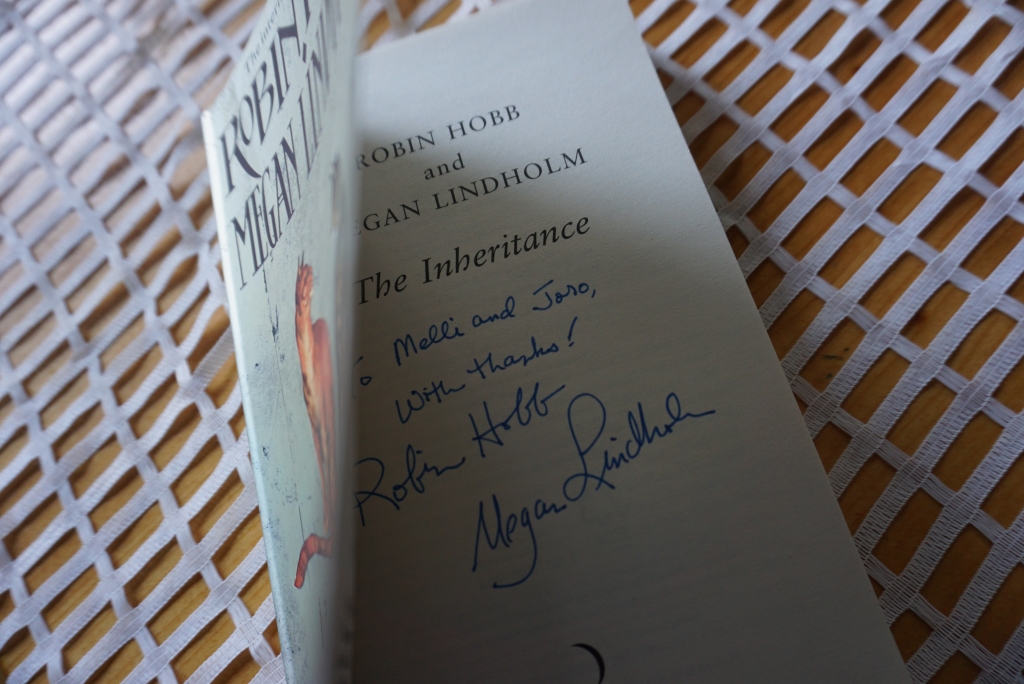
Moridin: So, we were wondering how the event has been so far for you. Did you have any time to see any of the panels?
Robin Hobb: We arrived on Tuesday so on Wednesday morning we went out and did a tour of the fortified island Suomenlinna – one of the tours that the Convention had organized. We've done a little bit of wandering through Helsinki as well. Often at conventions, as you probably know, you get so busy, you don't get to go to the panels that you have intended to go. But I have been able to meet a lot of new friends and also to see friends that I first met when I came to Finland in, I think, 2004. So it has been very, very enjoyable. And the city has been very welcoming to us. The convention did several things that I thought were absolutely brilliant. For first time attendees they’ve reduced the membership fee and then they also had a smaller fee for students and teenagers. So when I look out at the people who are attending, I see a much younger demographic than I usually see at a WorldCon and I think that was incredibly smart of them.
Moridin: Do you try to go to all the WorldCons?
Robin Hobb: No. It would really depend on whether there's time in my schedule and where it's being held. I definitely want to try to get to the one in Dublin, Ireland. And a lot of that is because James Bacon has been a long time friend and he is organizing that convention. And I’ve always had a good time at the events that he runs so I think it's going to be wonderful.
Killua: And I think that Ireland won so it’s official!* (all laughing)
Robin Hobb: Yeah, and the city of Dublin is really supporting and encouraging the convention. Much like here. This city I believe gave the convention an excellent bargain in that we all got little passes for the bus which also work on ferry and the trains and the tram and so it's made things so much easier. And it welcomes the attendees to the wider city as well. We don't say, “oh, I can't afford to go look at whatever attraction there is”. We have the little pass which I think was very clever of them.
Random: Yeah, It's been a very good experience up until now. So as a segway to the more literary questions I think it's a good moment to set up some context about your readership in Bulgaria. There are several of your series that have been translated back home. The first one was the Farseer trilogy back in the year 2000 I think. And then the Tawny Man has been translated and just recently, a couple of years ago, The Liveship Traders trilogy, I think all of the books are out now. And we're expecting the last part of the Fitz and the Fool trilogy. And just a few words about ShadowDance. Our magazine is the oldest active one running in Bulgaria for about seventeen years.
Robin Hobb: That’s impressive!
Random: And we try to diversify our content in the recent years. We’ve done several thematic weeks on topics such as political science fiction, women in fantasy and science fiction, etc. And as a segway from the previous question about the WorldCon -- there was a panel here which was called “Any sufficiently immersive fantasy is indistinguishable from science fiction” and I think this is sort of a reverse statement of what Arthur Clark said about magic and technology. And whenever I read your books, I’m struck by how well researched they are. Even though you don't get sciency talk necessarily -- it’s a fantasy world -- you can always dig deeper and it kind of makes sense. For example when I was reading the first book of the Liveship Traders, I thought at one point that you could think of the ships as a sort of nascent artificial intelligence. I work in AI, and it seemed to be a good metaphor for me to try to think about those ships. So do you see that as a useful way to approach writing and reading fantasy, that is, a sort of endeavor where you have to really build everything into the text as something that’s hidden but it’s there for the reader to start unraveling and maybe weaving together?
Robin Hobb: I think that the writer always has to know more than can possibly be conveyed to the reader. And it is necessary that the writer have a solid understanding of how the magic is going to work so that there are no contradictions; so that it is kept consistent throughout, in this case, several trilogies.
I like to think of magic that is in some ways biologically based. At one time there was a theory that if you planted a red rose next to a white rose and you let them grow for fifty or hundred years, the white rose would start to have red streaks in its petals. And people actually thought this was a genetic interchange going on between the rose bushes. Well it's been proven that it's simply the case that as the white rose ages it does this. But that concept -- if you put two creatures in proximity perhaps there could be a genetic exchange even between species, between dragons and humans -- was part of the idea of “What if this could happen?” And so there is this kind of an underlying layer. And when I want to know how the magic’s going to work, I think of things like this. I say what would happen were the exchanges to happen..
Random: So, another panel from the WorldCon that you were actually at was called “Is high fantasy still relevant?” It was a very enjoyable panel but I got the feeling that there wasn't actually much talk about the relevance part and to me it didn’t answer the question in the title. Scott Lynch remarked that high fantasy is usually about global conflict, some external threat that is a threat to everything; whereas low fantasy is more local, more concerned with everyday life of the individual or the community fate.
By this definition your books sort of combine the two extremes. I’ve always admired how much socio-economic details you put in them, especially The Liveship Traders trilogy. Do you think that’s a more interesting and productive way to think about high fantasy, this combination of "high" and "low" -- throw away that part that says it should always be about the big threat. It could be about the things that are woven into the fabric of the world, they are the generators of conflict. Is that more interesting to you?
Robin Hobb: For myself, on my bookshelf, I don’t really distinguish between high fantasy and low fantasy. To me it’s all about how well the world was built. Sometimes a book seems to be about one person’s problem but you can see how what that person does is going to affect everybody about them; we all change the world every day. So I don’t make this differentiation. I think if you want the story to speak to readers, then you definitely have to make it a very believable world with the economy, with the geography and it has to make sense. You can’t set a story in a city on a top of a mountain top if there is no economic reason for this city to be there. You can’t have a large standing army unless somewhere there is a grain field or some place where you can raise the food to feed them. There has to be these layers. So I think what we are discussing is how thorough is the worldbuilding; how convincing is it. And I think that we don’t have to divide it into high and low fantasy. We can simply say: how real is your world now? For me it’s just not a useful category to divide books into. It doesn’t impact my enjoyment of the stories.
Random: And have you read recently any new authors who blend these in the way we are talking about, with serious research and tying in different threads?
Robin Hobb: Yes, I absolutely have. And they work very hard to make a tremendous amount of sense. If you take something like Red Sister which is I believe Mark Lawrence’s most recent book (oh, not quite his most recent, I think Gray Sister is coming out). But when you read it, you see the impact that this world is experiencing because of a huge change in its climate, as the ice has crept closer from the poles and the land where people can live has narrowed and narrowed. This is as big a force driving the plot as the girl and whatever unusual powers she may possess and the training that she is receiving. So someone has to know what’s happening in this world to know what’s happening to this character. And that to me this is a very complete fantasy.
Moridin: I read recently on another interview that back in the day you’ve been reading a lot of horror which stroke me as unusual, it’s not something that I would’ve imagined. And as he mentioned -- we are trying to do these sorts of thematic weeks and put the lense on a particular aspect of the SFF field. And later this year we are doing this for horror so I was wondering if you can recommend a work or an author that has been interesting in the horror field and is more unusual in approach, something that would interest a wider audience and is not very well known.
Robin Hobb: When I first began reading widely in speculative fiction, you have to think back to before the publication of the Lord of the Rings in the US and what was there to read. So I can remember getting an anthology of stories -- I think it was called the Twilight Zone anthology -- they were related to the TV show, stories that could have been produced on the Twilight Zone. And I think at that time I was really enjoying short stories. Robert Bloch wrote many of these precisely chiseled little short stories that were absolutely terrifying and I enjoyed them. He is best known now for Psycho but that misses this whole other huge spectrum of short stories that he wrote. So I would tell readers to go back and look for this older author and see these lovely little gems of stories -- some just a few pages long -- that were very chilling little tales. Chilling from the inside, where it starts happening. And it seems very innocent but then it builds and becomes definitely horror -- he wrote a lot of horror.
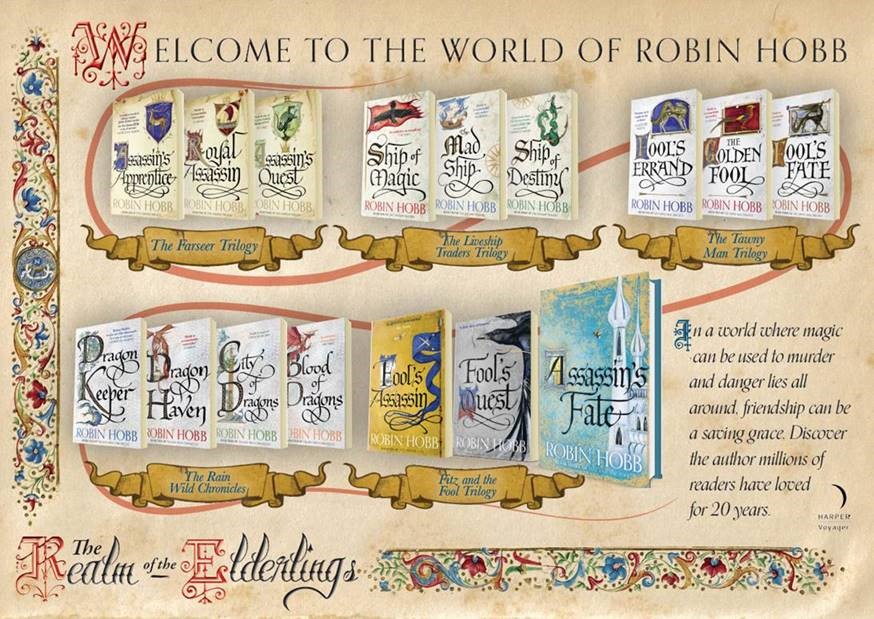 Moridin: Thanks for that! Back to your own books, one other thing that we all find interesting, and it’s very obvious in the Liveship Traders trilogy, is this strong portrayal of family ties and how important they are to the story. And especially the first book reads and feels like a family saga. So we were wondering if you found inspiration or you can draw any parallels to the classic family sagas of the 20th century like The Forsytes or something like that.
Moridin: Thanks for that! Back to your own books, one other thing that we all find interesting, and it’s very obvious in the Liveship Traders trilogy, is this strong portrayal of family ties and how important they are to the story. And especially the first book reads and feels like a family saga. So we were wondering if you found inspiration or you can draw any parallels to the classic family sagas of the 20th century like The Forsytes or something like that.
Robin Hobb: Actually, I think it is kind of the opposite. As I was going back to my early reading in the field, it was stories like Tarzan and Conan the Barbarian or Fafhrd and the Gray Mouser -- all of these heroic figures have absolutely no ties to home and family. They don’t have a sickly grandmother, they don’t have a cousin or an aunt, a sister or a brother. They are all set out on their own and whatever they do the only consequences are going to fall on them. Is that true for you? Can you say, “Gee, I think I’ll just take the car and drive away for two days and have an adventure!”
It's not very realistic. Although I enjoyed those stories, they made it hard for me to step into the story and identify with the characters sometimes. And if people did have homes and families, it was kind of only as background material, it was never the hero. So when I began to write, I wanted these characters to have the same sorts of stresses and support and ties and loyalties and conflicts that almost all of us do. So yes, they have homes, they have families, they have people who think they have a duty; they have people who will be disappointed if they do something; people that may be put into danger by this person’s decision. And I think that makes it a much more interesting story. It’s not so much that I wanted to write a family dynasty story as that we all are part of families and you can’t really cut a character out and put him alone in the world without any explanation about why this person is alone and feels no ties.
Moridin: Yeah, usually insofar as family is at all described, it only features for providing some backstory of the character but that’s pretty much it. And indeed in the real world that’s not really the case. It’s too convenient that fantasy novels always have this sort of protagonist that’s an orphan or whatever.
Robin Hobb: Or often the story cuts the hero loose from everything, whether we are talking about Luke Skywalker -- we destroy all your family connections so that you can move along. It’s so much easier to write an orphan or a solo character than it is to write a character who still has ties and all the relations.
Random: So, I am gonna ask a sort of an improvised question but as you were talking about horror, I was just wondering if you also read science fiction more widely and if you did, do you have a favorite author? And that ties to a question about families because I’ve just been listening to some wonderful people talking about Octavia Butler. She writes about family in all of her books so have you read her?
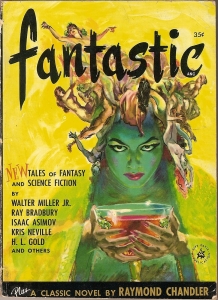
Robin Hobb: Oh, Octavia Butler works on very powerful stories and I would say that my favourite would be Parable of the Sower. But she wrote some very powerful stories. As far as reading science fiction -- again, I am going back to before The Lord of the Rings was published in the US, because that was a really watershed event for me when I found it out as a teenager and read it. Prior to that, my mother was an avid reader and she would often go to the second-hand book store and she would come home with the magazines of the time, digest-sized, Fantastic, Amazing, Analog, Galaxy. And these were all short stories, mostly science fiction at the time, a little bit of horror, a little bit of weirdness. So I read a lot of those and I loved the writers of the time -- Roger Zelazny, Jack Vance. And that was a real foundation. And I guess it was really very educational in story-telling: how do you tell a story in a complete world in 10-15 pages as opposed to 400-500 pages. They had 15 pages in which to describe a setting, have a plot and characters that you care about.
Moridin: Do you still have time to read?
Robin Hobb: I still do and for years I’ve had a subscription to the Magazine of Fantasy and SF and also to Asimov's. I don’t have time to read them cover to cover as I used to. But there is always time to open it, browse through it and find at least a story or two to read.
Moridin: This is one thing we’ve been trying to do in the past year with our magazine – to establish this platform for young authors to send us stories. We have a panel of literary people that reviews them, publishes them and then helps with editing work, etc. It’s still a very small market and community in Bulgaria.
Robin Hobb: I think that in our genres especially, the short stories is where the most exciting work has been always done. It’s where you start to see the shifts in the field – here comes cyber-punk or here comes steam-punk. People are working on it in short stories. And it’s very good training for any writer to say, "can I write a short story with a beginning, middle and an ending in just this number of pages?" When I first began writing that was the standard advice given to fantasy of SF writers – to publish short stories, establish a name and then approach a publisher.
Moridin: Yeah, this is what we’ve been trying to recreate.
Robin Hobb: Definitely it’s where you get to experiment more and if you fail it’s not a year’s work.
Random: So... Fitz is one of my favourite characters of all time (among lines you’ve probably heard a thousand times!). And even beyond greatly realized characters one thing that I love about your work is that you are able to write so many characters who are really different from one other. And apart from this multiplicity of characters and viewpoints, there is also the interaction and those different reactions -- the characters often contradict each other or complement each other and you get to see different things from different perspectives. And sometimes it really is a "wow" experience. Apart from the research, of course, do you have a particular approach to writing those characters and the web of interactions between the characters? Something akin to "method acting" where you put yourself into someone else’s mind, trying to become that character?
Robin Hobb: I try to remember that there are no minor characters. Every character has their own story. And maybe we don’t travel very far with them but the lesser character that is interacting with the main protagonist, this character still has a home and a family, they still have things they are trying to get done today, they still have worries. And they have to be written as if they have all of those things. Their reactions to the protagonist are important. If you give me a tip to take your horse to the stable, is this insulting or is this all the difference – it means that I can feed my family tonight? We let the character have that reaction and we let the protagonist notice it – because we do notice it. We notice the security guard who is very helpful and polite opposed to the security guard that is impatient and just wants his job done. So of course it would be that way in a fictional world.
When you are writing from a multiple viewpoint, like when I wrote the Liveship Traders where there are a number of characters, I step into that character’s world and mind and see others from that character’s perspective – this is very much like saying “what is important to this character today?” And it may not be to save the world – maybe they want to buy a new dress. In either my very tight third person point of view, or when I am writing a first person point of view, I am trying to imbue the whole story with every aspect of what the character is thinking and feeling – not just the one driving force of the tale but all of the little pieces around it.
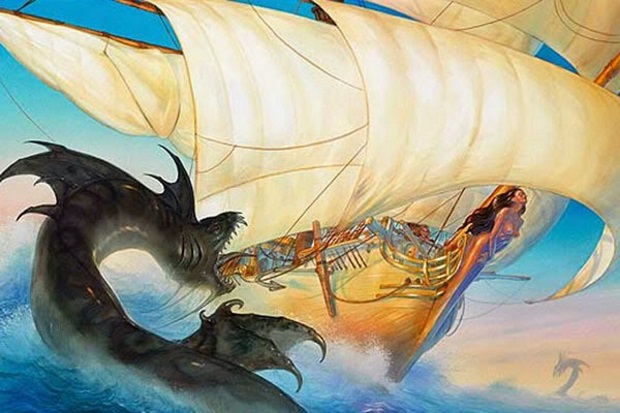
Moridin: I have a follow-up question on this one. I think it’s a bit of a challenge, and I was wondering from a craft standpoint how do you resolve it, to write a character at a given point of time and then 20 years in the future. How do they preserve identity but without being the same character without any change? How do you tackle this?
Robin Hobb: One of my most important tools is that I keep a timeline – I have all of my characters’ lives and some major events and I make sure that all of my characters are aging at the same rate, nobody stays a child and somebody else becomes an adult. And I think that’s important. It’s important to look at the characters and say – 10 years ago you were in the city guard and now it’s 10 years later and that’s very hard work. How has it changed you? Do you walk more slowly now? Have you put on weight? Maybe have a few more scars? Are you sad that you followed that career and wish you had done something different? And just ask the same questions you would if you ran into a friend you hadn’t seen for 10 years and write from that point of view so that they show their miles.
Moridin: Does it happen to write a line and then to think: “this is what Fitz would have said 10 years ago but not now”?
Robin Hobb: Not so much as with a minor character. I would start to say “ok, you’re just a kid” and then I stop and say – no, he is 22 now. He is not just a kid. He has made some mistakes already. The last time we saw him he was just a kid, but now he has made a mistake, maybe he’s had a girlfriend, maybe he is tired of being at home and having his parents tell him what to do. Who is he now, what’s going on in his life?
Random: And do you think the distance of years has helped in writing a character who ages?

The view in San Rafael, where at some point Philip Dick also used to live. And also not Santa Fe, which is what yours truly believed they had heard at the interview until they read Ms Hobb just recently visited Santa Fe for the first time.
Robin Hobb: Well the years have to pass and if I were going to tell you the story of my life I would not tell you every single day that I have lived. I would say “I was born in Berkeley, at 5 we moved to San Rafael and it was very different – Berkeley was a big city, San Rafael was a brand new suburban area. And then we moved to Alaska.” But I am not going to tell you every single day of my schooldays. And so it is when you are writing a story, when you are writing a novel. Nobody wants to know what Fitz ate for breakfast every single day when he was having a peaceful life at Withywoods. That would be a very boring story. There would be momentarily moments of interest when maybe somebody falls off a horse or they have a chimney fire but it’s not enough to sustain a novel so those quiet pieces that are not very interesting – you pass those and come to the next part where things become difficult and very interesting.
Killua: So the first time that I actually read your books was two years ago. It started at a SFF book club that we run -- we gather each first Sunday of the month at a bookshop to discuss a book that we’ve read. So it was suggested that we read Ship of Magic and this was my first encounter with your books. The discussion was very interesting, a lot of people had very strong opinions about the characters, in terms of love and hate. It was very intense. I do remember very clearly one of the people there had said something very interesting about Kyle and Kennit. That when you go inside Kennit’s mind and read how he thinks, you realize that he is not a very good person. But although he has all the "wrong" reasons, somehow he is doing the right things. What he does changes things for the better for his people and they love him and adore him even when he doesn't intend it. While when you go inside Kyle’s mind -- he is trying hard and the reader could think “these are the right reasons”. But the impact that he makes is not very positive and people do not like him. I was wondering whether this was on purpose, to have these two characters being opposite somehow?
Robin Hobb: It was not a deliberate choice. Everybody feels that they are justified in what they are doing. We mostly think we are making the right choices, that we are making choices that are good for us. If we love our family and friends, we try to make choices that are good for them. We see it every day. A parent would say: “Oh, I don’t think you are ready to go to college, you should stay at home for another year, you should get a job instead”. They give this advice with a good heart, but maybe for the young person it’s a lost opportunity. There is very little evil intention. Or a different parent says: “Oh, you’re 18, you finished high school. Get out into the world, be on your own. It will make you strong, you will start your own life”. And again -- there’s good intentions, but it may be disastrous. This is for all of us. I don’t think any of us get up in the morning to say: “I think I will be evil today”. Those kind of characters used to appear in comic books, they don’t anymore, not even in the comics. We expect people to be more dimensional than that.
Moridin: So even though Kennit is clearly more exploitatous, it's still doing the right thing for him?
Robin Hobb: Yeah, he is something of a sociopath. But many things have happened to him, and the things that happened to him have affected who he is. It’s not without a reason, it’s not that he grew up in a loving secure family with plenty to eat with someone who cared about him and said: “we’ll educate you and make sure you have good clothing and shoes on your feet”. He would have become a different man. And that happens to all of us.
Killua: Mhm, and something else connected to Kyle. A friend of mine who is also on our team is a very huge fan of yours and he loves your work and he was very excited that we are going to meet you. He really loves Malta. So this question is about her. Her whole trip was about her finding her father and at the end of Ship of Destiny, she doesn’t understand what has happened to him. She doesn’t ask the people that know his destiny about it. And my friend was wondering whether you wrote a scene about this but deleted the draft or you never intended for her to ask and know about her father. I mean, of course she found out eventually, but it wasn’t on the pages of the book.
Robin Hobb: A writer cannot put everything on the pages of the book. You can only put what your characters know at that time. And as you may have noticed there’s a character from the Farseer trilogy who also appears in the Liveship Traders. But at no point do I stop and say “Oh, by the way this character and this character are the same.” Because there is nobody in the book able to say that. And to make someone stop and announce it would make no sense. So it is not there. I can’t put it in there without breaking the logic of the world.
Killua: I guess the wondering is because this question is very important to Malta and her entire journey. So one would feel that she would definitely ask about her father.
Robin Hobb: She would find out at some point. But it’s not necessarily a piece of information that there is a time and place to convey it. I often see movies where people are in terror for their lives and one would say to the other: “I’ve always loved you!”. And they stop and kiss. And I’m like “you should be running!!! This is not the time!!!” And so it was not the time and the place for those characters and Malta. It would not be something that they would just say: “Oh, by the way this happened. Get on with it.” It would be something that later on would be delivered. And not everything happens on the page where the reader sees it.
Killua: And we meet her later it‘s many years after that, so there is no point in going back.
Robin Hobb: No, she’s accepted it.
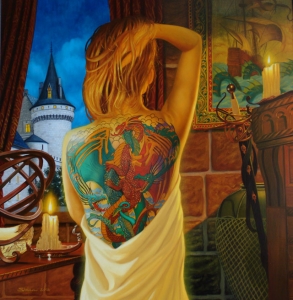 Killua: I actually just finished your last book and I am really emotional about it… But when I was writing reviews for our magazine about the previous two, I made this observation and I was wondering about your thoughts about it. It feels important at the end of the series now. There is this trinity – Fitz, the Fool and Nighteyes, and somehow the Fool always looks at the future, Nighteyes is clearly living in the present, and Fitz is sort of always thinking about the past and back at his youth and his experiences. Or is he rather the link between the Present and the Future that Nighteyes and the Fool stand for?
Killua: I actually just finished your last book and I am really emotional about it… But when I was writing reviews for our magazine about the previous two, I made this observation and I was wondering about your thoughts about it. It feels important at the end of the series now. There is this trinity – Fitz, the Fool and Nighteyes, and somehow the Fool always looks at the future, Nighteyes is clearly living in the present, and Fitz is sort of always thinking about the past and back at his youth and his experiences. Or is he rather the link between the Present and the Future that Nighteyes and the Fool stand for?
Robin Hobb: I’m often asked about symbolism or themes in the books. But I don’t really think about these things, I just want to tell a story. So, this makes absolute sense, but in fact it never occurred to me. (all laugh)
Random: We have a question from one ofour readers about the Soldier Son trilogy. This series explores questions rather more relevant to the present like obesity, colonialism, destruction of forests. Did you see that trilogy as a different direction from what you have done previously and do you think that was an important direction to explore? And do you think that it should be done more in the genre -- tackling these more relevant, immediate questions?
Robin Hobb: The Soldier Son trilogy takes place in a completely different world. And what fascinated me was how when we look at the clash of cultures often there is more exchange of information about one another during war than there is during peace time. And this is something that has interested me. When you think about what the European crusaders brought back to Europe from the Middle East and what the Middle East took from the European invaders during that time, what they learned about each other and what they didn’t learn about each other, that has interested me. So the idea about that clash, whether it is Britain and India or whether it is European settlers coming to the Americas -- it is always there. Do you learn that you can eat pumpkins and grow corn? Or do you learn that you can kill these people with blankets from a smallpox victim? So this was the kind of thing that had fascinated me. I certainly didn't plan to write a story that tells people why we should not cut down forests. To me that’s not a story -- that’s a lecture. So these things are part of the story, part of one culture coming in and changing the way of life for another culture.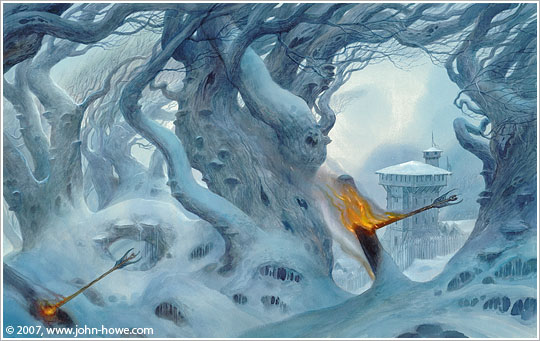
Random: I think that what you said connects very well to what we discussed previously about good worlds being very dense and very deep and wide at the same time. We did several articles on the potential of SF to be radical in this way -- not deliberately radical to provoke reaction and to tell people what to do...
(Random’s mom rings to congratulate him for his 30th birthday. We all laugh and Robin points out how important and how inescapable family connections are!)
.. but being radical in the sense of really paying attention and in that way you are bound to grapple with these difficult questions which very often in fantasy are put away because it’s easier to tell the story of the orphan who fights the evil. But actually in a well realized world you’d have to explore so many different things and would get down to these thorny questions. So do you think fantasy has the same potential as science fiction to be radical in that way?
Robin Hobb: I think that if you are going to have a complete world -- fantasy and science fiction and any literature is going to touch on these things. It’s not that I think that fantasy, or science fiction, or mysteries, or romance have a duty to makes us think about such questions, necessarily. It is just that if you are going to tell a complete story, you are going to touch on these kind of events. Because they’ve always been with us and they always will be with us. To write a real world you can’t just write this isolated little piece of it -- there has to be at least some visible streams going on to the rest of it.
Random: Okay, so maybe I'll rephrase the question. There is this notion that SF and Fantasy are not really separate genres; that they are one genre… and it’s the sense of alterity that actually defines this genre. That we react in a particular way to this sense of otherness in such stories. Do you think that heightened sense of alterity - being different, being other, otherness, something you have to get used to, to make an effort to understand -- do you think that can allow fantasy to provoke mindfulness towards our real world questions as well?
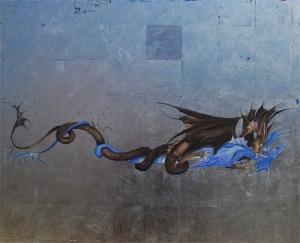
Robin Hobb: For me I don’t need a story to have a lesson or a moral or to teach me something. I simply want to read a well-crafted story that has the details and the connections to the real world. Especially if you are writing fantasy. All of the parts that are not fantastic have to be correctly ordinary. If I’m writing a fantasy story and I have you walking 50 miles every day to get to where you work -- that doesn’t work. Right away you’d say that you can’t believe that. So that has to be fixed -- you either have to take a bus or a bicycle (Killua: or a dragon!). Exactly, a dragon, or a giant. Or you have to sleep on the ground at work and then walk home only for the weekend. It’s up to you to choose how you tell it. Or you give up on that and have them only walk 2 miles to work in the mornings. If you want to harden your character and make them more unfortunate, maybe have them walk 5 miles. In the rain. It is important to get the details of the real world straight and so tie the story down to reality. And then you add the fantastic elements and that makes the fantasy part believable. I’m not sure if I’m answering your question.
Moridin: I guess we are coming from a shared belief that the speculative fiction genres are maybe uniquely equipped to instill and to provoke social change or at least thinking about the future in a meaningful way without being necessarily didactic or conveying a message but rather exploring opportunities that might light the spark in somebody, with regards to social questions of whatever nature.
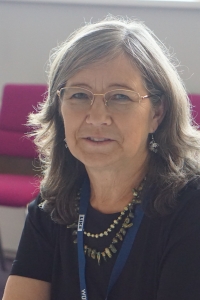 Robin Hobb: For me any literature can do that. You can do it in mystery, you can do it in romance. You can certainly do it in a mainstream novel. What fantasy does best I think is that it can look at big questions and at the same time erase background. Okay, you are in a different world. You’re not Polish, you’re not American, you’re not a Russian. You no longer have economic security -- maybe you are now a poor man. Or maybe you are the king. Or maybe it’s not a system of royalty. Maybe you are the CEO of a rockship company. I can take away all of the things that you feel loyalty to, I can erase all that and say: you are the CEO of a rocketship company, you are doing wonderful things in the world but unfortunately you have to use slave labor. Is this right, is this wrong? But it's important to understand that this is not what the story is about. It’s there and the reader can think about it but I wouldn’t make a “is it right or wrong?” kind of story. The question just sits in the background. And it maybe makes you think -- does it bother you in the story or do you just accept it? But you don’t necessarily have to come to it with a preconceived loyalty that, for example, the US is always right. Whatever the things that define your environment today -- that is all erased. You are stepping into a world where you can think of things in a new light.
Robin Hobb: For me any literature can do that. You can do it in mystery, you can do it in romance. You can certainly do it in a mainstream novel. What fantasy does best I think is that it can look at big questions and at the same time erase background. Okay, you are in a different world. You’re not Polish, you’re not American, you’re not a Russian. You no longer have economic security -- maybe you are now a poor man. Or maybe you are the king. Or maybe it’s not a system of royalty. Maybe you are the CEO of a rockship company. I can take away all of the things that you feel loyalty to, I can erase all that and say: you are the CEO of a rocketship company, you are doing wonderful things in the world but unfortunately you have to use slave labor. Is this right, is this wrong? But it's important to understand that this is not what the story is about. It’s there and the reader can think about it but I wouldn’t make a “is it right or wrong?” kind of story. The question just sits in the background. And it maybe makes you think -- does it bother you in the story or do you just accept it? But you don’t necessarily have to come to it with a preconceived loyalty that, for example, the US is always right. Whatever the things that define your environment today -- that is all erased. You are stepping into a world where you can think of things in a new light.
Moridin: Yeah, I think exactly this idea of taking an important topic or a question from our world and putting it into another context is what makes it interesting to explore in an unusual way. And we also have a question about your panel from yesterday about "Animal characters in SFF". I think it can also be looked at as a way of blending the mundane and the fantastical. We recently saw a documentary that’s called Planet Earth, I don’t know if you are familiar with it and if not, you should absolutely see it. The narrator tells, in very short segues, stories about things that we never knew animals actually do. Through the eyes of all sorts of animals he tells parts of their lives in great detail and it feels amazing. I found out for me that my knowledge of animals is very superficial and I don’t know much of the way they interact with the world on a daily basis. And this kind of clicked with what you said about delving into the biology of the animal. Maybe one interesting question is whether examples from the animal world can be so fantastical that they can serve as an inspiration for fantastical topics in SFF or fantastical creatures.
Robin Hobb: Absolutely. We are still learning so much about our own natural world and there are many things we don’t know about the octopus or the elephant and their family structure; or the things we are finding out about what insects can do. Our knowledge is growing and we should get an awareness of what an amazing world we live in. For any story you can take an example from the animal world and the biology and apply it and say: “What if a person could do this? What if I could exit the room like an octopus moving in a tank. What if this was my superpower or just certain people could do this and other people couldn’t”. What if I could change colors when I was alarmed? What if people -- and this would be a great story idea -- what if we could shift racial characteristics based on where we were. What if you could simply say: “I’m going to be in a very hot climate, a lot of sunshine and I need to darken my skin. And I need to elongate the bones of my arms and legs because now I have more surface area to disperse heat”. Or I’m going to go visit an eskimo village so now I need to shorten my limbs so that I conserve heat and I need to be shorter and have a stouter body so my internal organs are kept warmer. What if you could do that? What does that do to the barriers between races? You can take all of these what-ifs and have a wonderful time with them -- every single one leads to a thousand of stories.
Random: Actually that fits very well with what you do in the books where you sort of blend and erase the boundaries between human and animal, dragons and the Elderlings etc. So I think at the end you really get much more flexible perspective on what being human or being an animal is.
Robin Hobb: And would happen to all of our petty boundaries if there was a very large carnivorous top-of-the-food-chain creature that was as intelligent as we are and simply didn’t pay attention to our boundaries. What happens next? And how do we relate to other countries now?
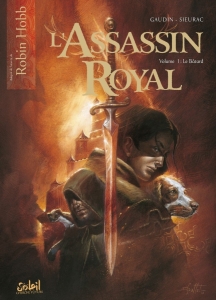 Moridin: Some final questions as we seem to be nearing the time. Would you be willing to experiment with other media? We know there is a French graphic novel about the Farseer series. Are you yourself interested in being more involved into writing a graphic novel yourself, or participating in the design of a video game based on the Elderlings universe?
Moridin: Some final questions as we seem to be nearing the time. Would you be willing to experiment with other media? We know there is a French graphic novel about the Farseer series. Are you yourself interested in being more involved into writing a graphic novel yourself, or participating in the design of a video game based on the Elderlings universe?
Robin Hobb: The thing is I am a writer -- I write novels and I write short stories. For me, in order to learn to write a game, I would have to stop that and I would have to spend time playing games, learning games and learning how to design games. And in that time I could be writing more novels which I am good at. So to me it would make no sense to do that. It would be like deciding to suddenly become a painter or a carpenter. In economics you call it opportunity cost. If I want to learn to write graphic novels or screenplays, my opportunity cost is I don’t write the next two novels.
Moridin: So what are those...?
Robin Hobb: (laughing) I have no idea. For me to do it myself makes no sense. It would be like me doing my cover art or doing my own typesetting. Something like that.
Random: Well, we'd like to thank you very much about this opportunity..
Robin Hobb: Oh, thank you and Happy Birthday! Call your mother.
Moridin: And of course we would like to cordially invite you to Bulgaria at your leisure at some point and help host you.
Robin Hobb: I don't know when my next opportunity for that would be. We are trying to plan in advance because we have complicated lives with families, farms and dogs and I have chickens. So for 2018 we have somewhat planned our travels already. Tentatively in March we will travel into Paris. Then we have planned another trip to Poland and from there jump back to France. So that would be one trip. And later in the years there is Portugal -- our publisher organized a little festival. And from there we would go to the Luca comics festival in Italy.
Killua: Maybe the question should rather be what should we do to have you come to Bulgaria?
Robin Hobb: Usually I go at the invitation of my publisher or at the invitation of one of the local conventions and festivals. I don't usually just randomly pick that I should go to Russia next week. It’s more like, they have invited me, it’s a large convention, it’s worth my time to go because in one location I will meet many, many readers and talk to my publisher or to other Russian writers. So that is kind of the combination we look for. A good use of our time.
Moridin: Noted. Thank you!
Robin Hobb: You too. See you again!
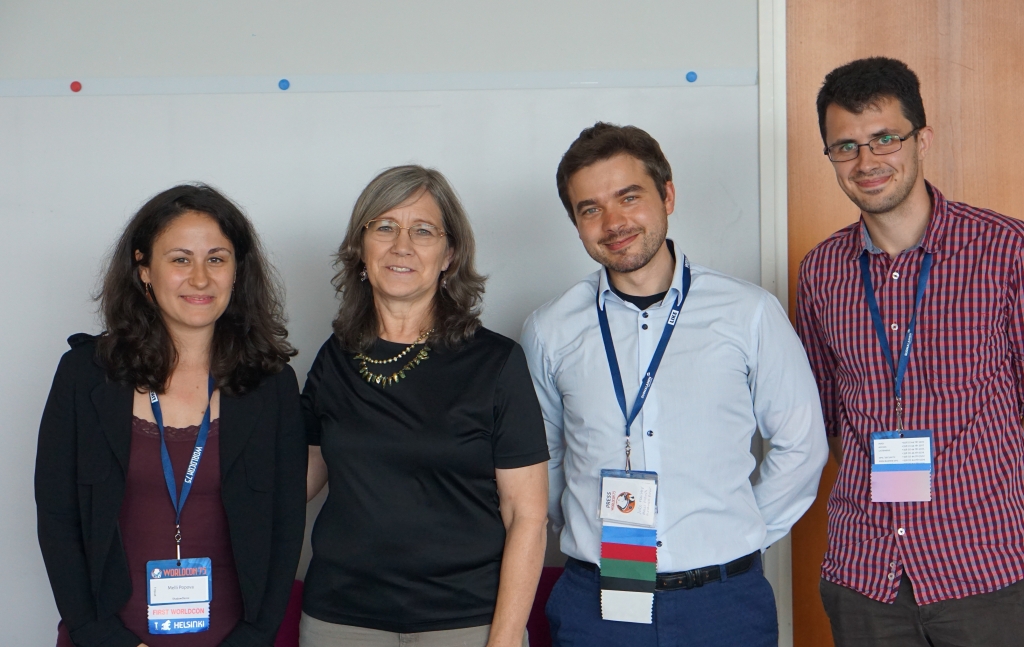


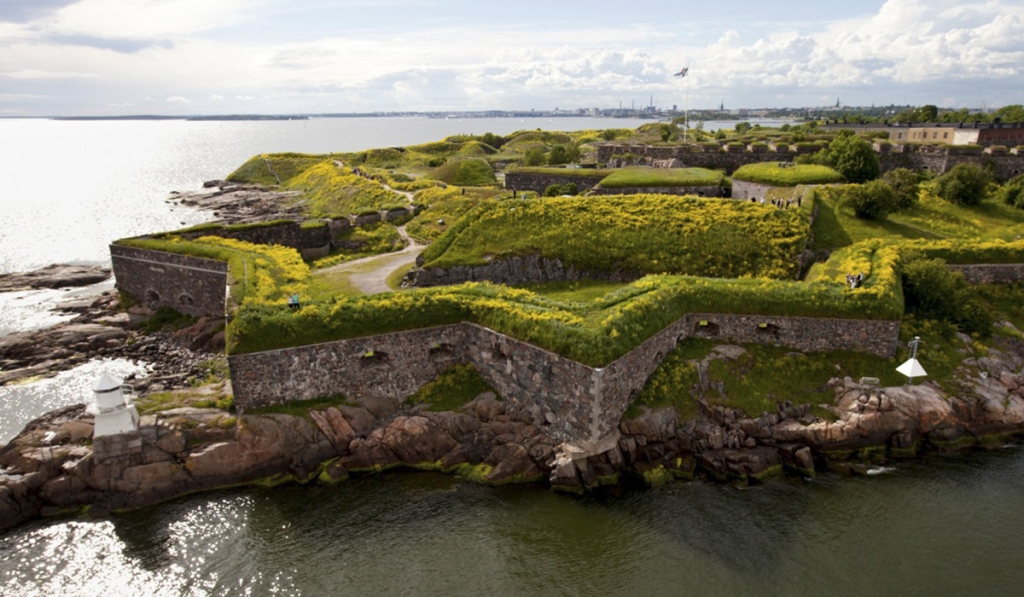
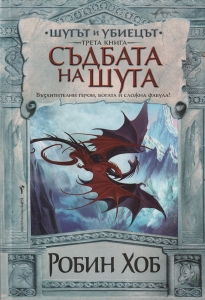
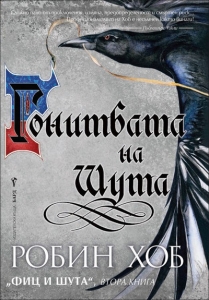
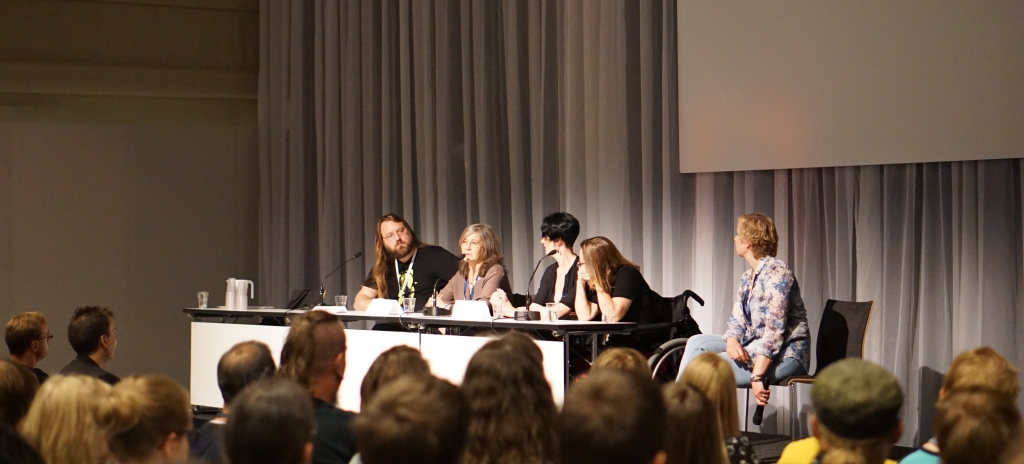
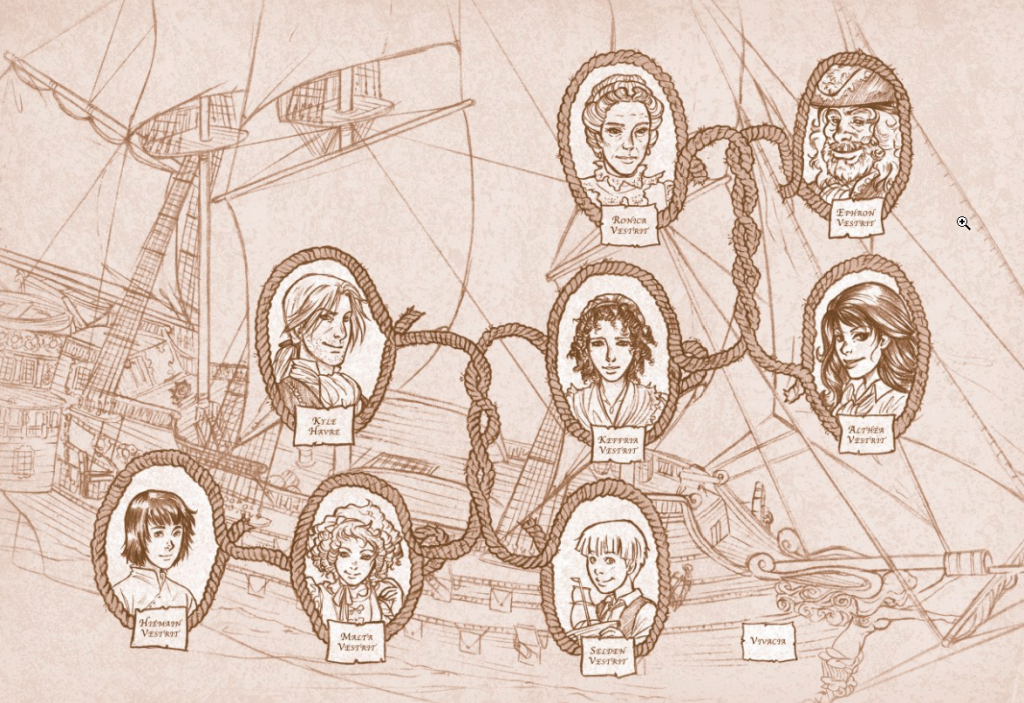
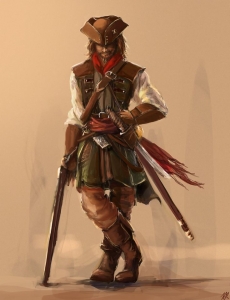
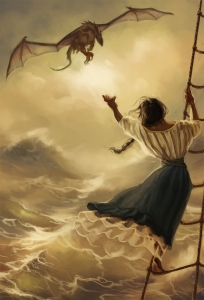
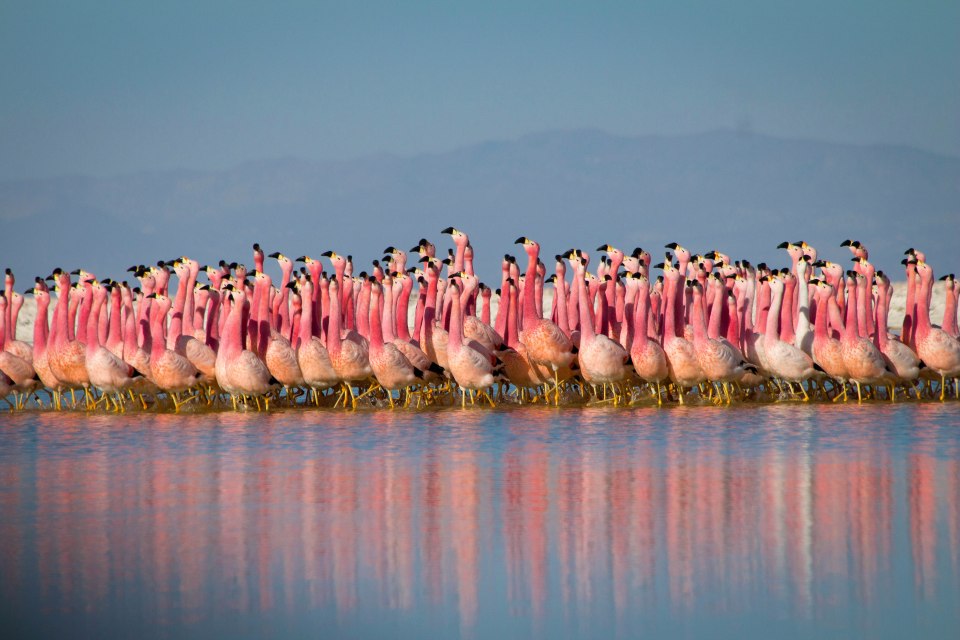
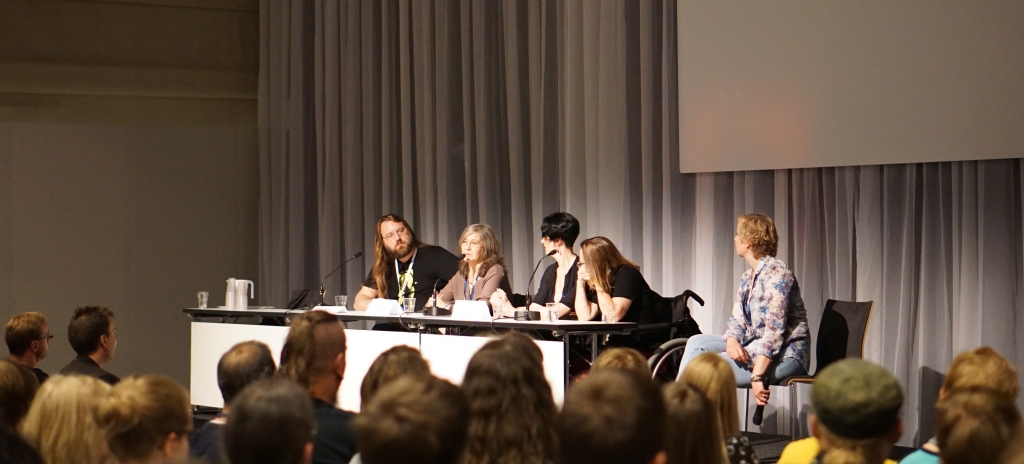
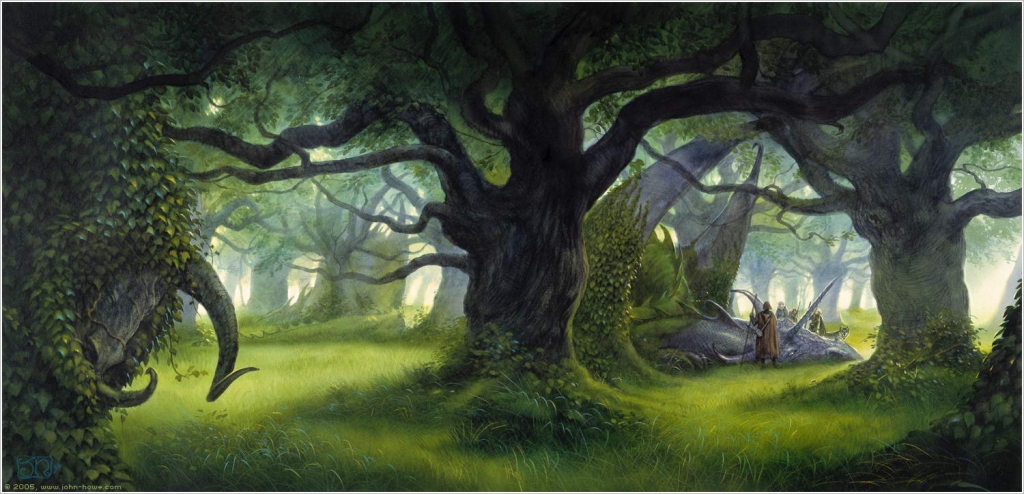
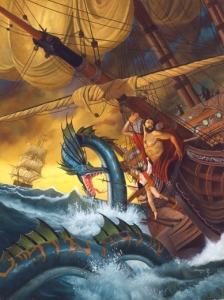
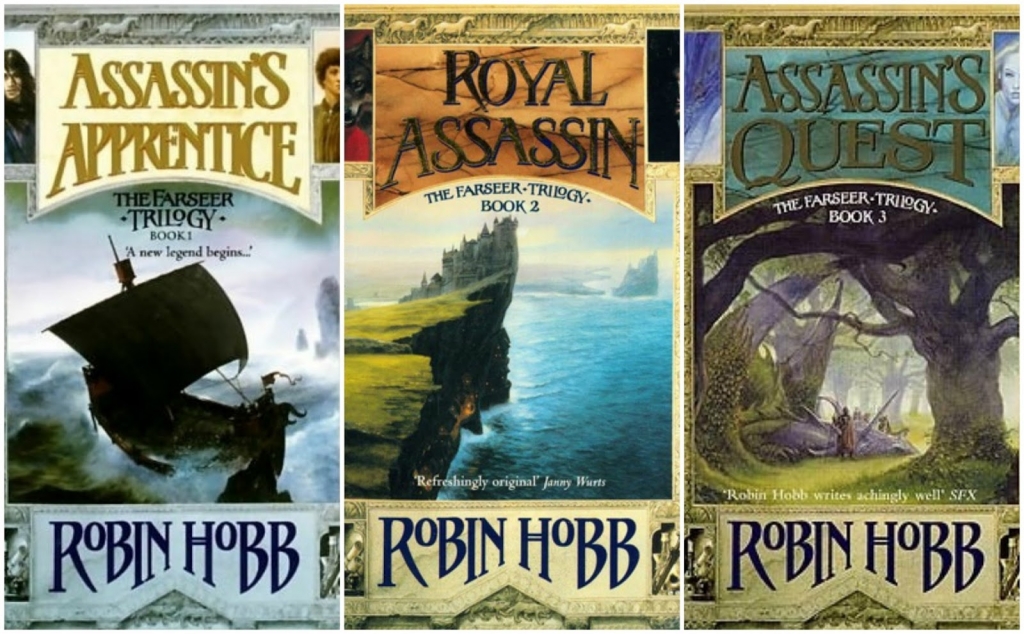
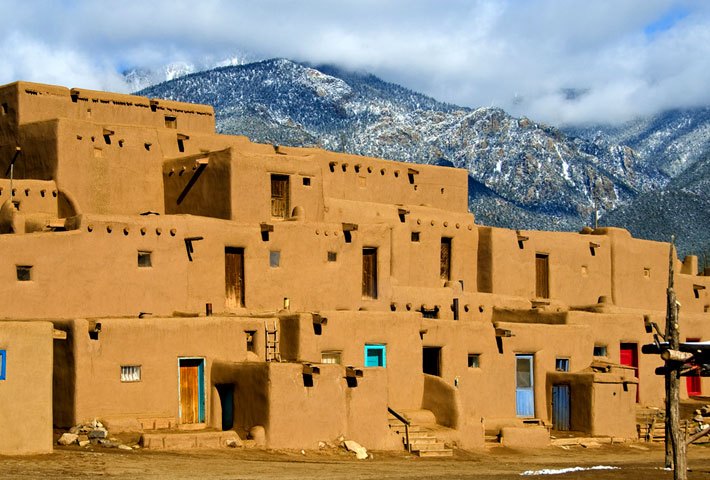
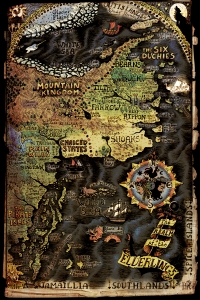
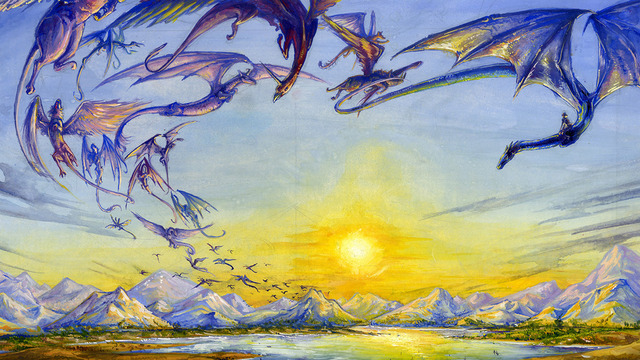
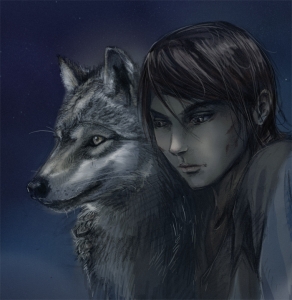
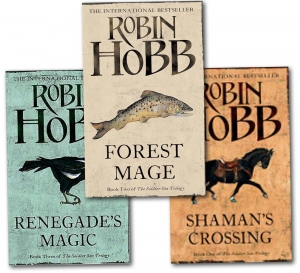
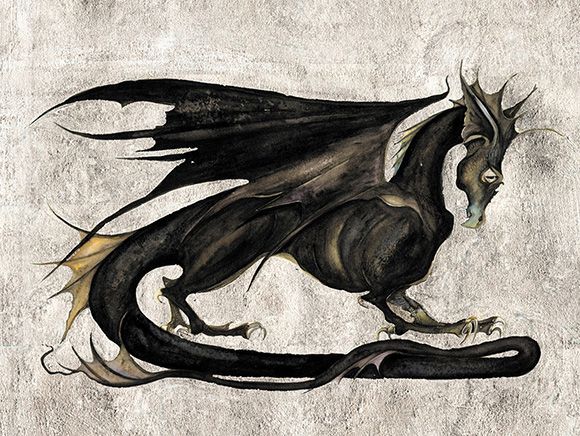
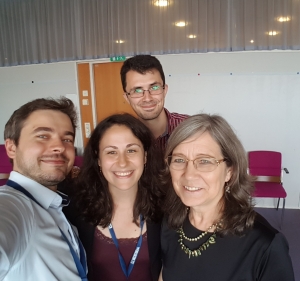

Благодаря!!! Интервюто е…невероятно! Благодаря за ентусиазма, фенщината, труда и за въпросите, които сте задали на Робин Хоб. Защото не е достатъчно интервюирания да е мил, отворен за въпроси и интелигентен, а са много важни въпросите, които му се отправят, за да се получи такова подробно, информативно и проникнато от смисъл интервю. А вие определено умеете да задавате важни и интересни въпроси. Всъщност то си е разговор между съмишленици за нещата, които ги вълнуват. Узнах много за възгледите и творческия подход на авторката, неща, които долавях от историите й и други интервюта с нея, но при вас се е получило нещо като откровение:)
Идеята да я подсетите за посещение в България е великолепна и дано някой ден имаме това щастие. Тогава аз ще си седя кротко и ще я гледам с обожание:).
Още веднъж – благодаря!
Много готини снимки, да спомена.
Сърдечни поздравления на Рандъм за рождения ден и най-добри пожелания!
Не разбирам как е издържала Робин Хоб на тъпотиите ви. Добре, че отговорите не са като вашите въпроси, та човек все пак да успее да прочете нещо. Баси високопарните въпроси, не казвам напръцкани, че ще се обидите.
Съмнявам се, че говорите така надуто, както пишете. Не бъдете толкова спечени.
Хората са се спекли малко от срещата с любимата авторка. На всеки се случва. Голяма работа!
Иначе яко интервю. Ще трябва да наваксам с Хоб.
Напротив, точно така си говорим 😀 Иначе кой каквото му е интересно, Робин Хоб е достатъчно готина, че да отрази и молба за интервю с по-лесни за четене въпроси ^_^
Според мен това е най-важният и значим материал, който някога е бил публикуван на страницата на списание ШадоуДанс!
Личи си, че Робин Хоб не е лесна за интервюиране – не отговаря директно, шикалкави, гледа да нагоди към въпросите неща, които предварително е мислела да каже. И все пак вие успявате да я провокирате и да я накарате да разчупи обвивката си. Това, че нейните романи не насаждат идеи и не искат да насаждат идеи и послания, е невероятно смело изказване, особено във времена като днешните, когато всяко художествено произведение се гледа през призмата на това дали насажда/предлага „правилните“ модели на мислене.
Също така ме порази практичността на отговора ѝ, когато обяснява защо няма да пише игри или филми. ВЕЛИКА Е!
Робин Хоб е истински невероятен автор и за мен беше чест да прочета думите ѝ. Благодаря ви за тази възможност. От цялото си сърце.
ПП: Още вчера ходих да си купя първата книга на Марк Уорънс. Щом Хоб препоръчва, значи съм длъжен да чета.
много готино интерв. нестандартно. задавани са въпроси не толкова за света на героите (въпреки че има достатъчно и от тях), колкото какво вълнува авторката, какви писатели чете, какво е влагала в книгите… на мен би ми било интерсно – ако правите ново интервю с нея – да я попитате, дали ще обогати самата вселена на Древните, в смисъл да допълни света на Фиц и Живите кораби с нови герои или по-нови карти, които да представят света на юг от Джаймалиля
много готино интерв. нестандартно. задавани са въпроси не толкова за света на героите (въпреки че има достатъчно и от тях), колкото какво вълнува авторката, какви писатели чете, какво е влагала в книгите… на мен би ми било интерсно – ако правите ново интервю с нея – да я попитате, дали ще обогати самата вселена на Древните, в смисъл да допълни света на Фиц и Живите кораби с нови герои или по-нови карти, които да представят света на юг от Джаймалиля
Много благодаря за това интервю с любимата ми авторка! Направихте един човек супер щастлив!
Също офтопик Марк Уорънс ще ти хареса, или поне The Red Queen’s war поредицата.
И аз благодаря сърдечно. Облекчихте ме от едната ми мъка, че не успях да се класирам в Хелзинки. 🙂
Но ми създадохте друга – с ей тоя цитат:
I don’t think any of us get up in the morning to say: “I think I will be evil today”. Those kind of characters used to appear in comic books, they don’t anymore, not even in the comics. We expect people to be more dimensional than that.
Вчера привърших последната книга от последната трилогия за Фиц… и едно от усещанията ми в нея беше, че антагонистите са станали именно тоя картонен, „старокомиксов“ тип. Вземете примерно Dwaila – какво (смислено) я движи нея? Четиримата в Clerres пък така и не получиха сериозна мотивация…
Оттук ми хрумват разни въпроси, които бих задал на Хоб, ама… може би в Дъблин? 😉
Не знам, още от първите Фицове имаме Славен, за когото не бих казала, че е много по-развит от Дуалия, даже обратното. Той си беше чист разглезен гадняр с мания за величие. Така че не съм много съгласна, че има толкова голяма разлика между първите и последните Фицове. Ами Бледата жена? Тя си беше чист гадняр и тя.
Разликата може би е, че примерно в Корабите можехме да вникваме в гледните точки на злодеите и по-лесно да разбираме какво ги движи, докато при Фиц сме ограничени в една (или две) гледни точки. Но пак конкретно Дуалия си има доста смислена мотивация (според мен е много по-добре развита всъщност от Бледата жена или Славен), просто си остана крайно антипатична до последната страница и това е.
Дуалия аз разбирам какво я движи – желанието да израстне в йерархията. Четиримата пък – желанието да „управляват“ света. Мотивите им са, че в него има твърде него хаос и те искат да създадат Нов Световен Ред, а Фиц и Шута им пречат. ОБаче не е добре обяснено, няма логика защо след като Фиц вдигна дракона Искрен те не са привлекли Фиц на своя страна вместо да си създават такива ядове…и всичко щеше да приключи дотук.
Да, Кал, желание да се издигне я движи Дуалия. Комплекси я движат – некрасива, без особени способности. А Фиц довършва единственото същество, към което тя е изпитвала привързаност – Бледата Жена, в чиято сянка вероятно е усещаала, че и тя самата има някаква стойност.
Изобщо, злото не се нуждае от мотиви, а когато има мотиви, които го движат, това е винаги желанието да властват над всички и всичко, извличайки всякакви възможни привилегии и удовлетворявайки собствените си нужди, независимо какви са те. Докато Шута и Фиц им се мотаят из краката, Четиримата не могат да разпрострат господството си над света, но все пак успяват да тласнат хората към кръвопролития и други бъркотии, като си живеят доста добре междувременно в Клерес. Убедена съм, че в света съществува натурално изначално зло, което, както твърдят някои автори, не можем да победим окончателно, но можем да отблъскваме всеки път, когато се наложи, ако впрегнем волята, силата и чувството си за справедливост. За жалост, когато това се случва, загиват и невинни – и в живота, и във фентъзи историите.
Представата за изначалното зло ми припомни разговора „има ли орки в нашия си свят?“. 🙂
Същевременно се замислих и за „Баналността на злото“ по Хана Аренд. Мотивацията на Dwalia (съгласен съм и с двама ви за нея) е банална. На Четиримата – също. Това са мотивации на ограничени хора – като в случая „ограничен“ изразява и ролята на външните обстоятелства: липсата на талант и привлекателност, убийството на едничката ѝ покровителка ограничават Dwalia. Те не ѝ дават шанс за повече. Или поне така ни я представя книгата.
Както написах в отзива си в Гудрийдс, можем да наречем Робин Хоб оптимист: в последната трилогия (а всъщност и в предишните) тя показва, че само глупави, ограничени хора са способни на (поредици от) злодеяния. И затова умните ги побеждават, при все че в Assassin’s Fate са къде по-малобройни, а ония разполагат с богатства и пророчества, трупани от столетия. Няма епични идеологически/космологически конфликти – има някакво дребно гешефтарство (било то със съдбата на света), което не си прави добре сметките (нали е глупаво), добрите (нали са умни) идват и му набиват канчето.
Това ме връща към проблема ми в първия коментар: къде са тези антагонисти, в последната трилогия за Фиц, които сутрин не се събуждат с мисълта „Днес ще съм зъл“? Които са „more dimensional“, както казва Хоб?
(Те, ако имаха достатъчно саморефлексия, че да си мислят какви ще бъдат днес, дали щяха да се държат така?)
А за това в какво се превръщат Фиц, Шута и Пчеличка в хода на отмъщението си, въобще не искам да отварям тема… Тая „старозаветност“ на финала ме съсипа най-зле. 🙁
Аз бих нарекла Робин Хоб реалист:). Като се огледаме наоколо, става ясно, че в реала светът се управлява от ограничени (и глупави)хора, а не от умни и възвишени. Антагонистите на Хоб не биха се събудили с мисълта, че днес ще са зли, защото те са изначално зли и не е нужно да си го напомнят. Разбира се, макар и обединени от злото, което носят в себе си, те са и различни, ако и да не се наемам да твърдя, че са многоизмерни.
Винаги съм вярвала, че досегът със злото променя хората, които му противостоят.(Да си спомним Фродо, който накрая обяви, че запазва Пръстена за себе си; Рон Уизли, който ставаше злонамерен, докато носеше на шията си хоркрукса, и т.н. Тези ситуации много импонират на моето убеждение). Не очаквах Фиц, Шута, Пчелица, чиито съдби са белязани и объркани от Четиримата, да плеснат с ръце и да се прегърнат с тях на финала. Разбирам необходимостта ти литературата да не е огледало на пътя, което отразява уродливостта на нашия свят (по Стендал), но (само)красиви и хармонични светове, хора и отношения съществуват само в нашите блянове, уви.
ако припомним св. Августин – няма изначално зли хора. Злото всъщност е мутирало добро. Според Мирча Елиаде злото и доброто са равни като количество и са във вечен противовес – не би могло някое от двете да надделее, защото това ще значи край на света. Но злото е само по-себе си необходимо, за да знаем какво е добро (пак по св. Августин). Героят на Фиц се развива – в първата книга той е едно обикновеновено момче, което се стреми да оцелее сред интригите в двора, постепенно се превръща в герой който спира Алените пирати, впоследствия разбива котерии от Умели и помага на принц Искрен да извае своя драко;но легендата за него не спира дотук, Алениетe пирати се оказват част от нещо по-голямо – Бледата жена и Фиц трябва да спре и нея; Още във финала на вторат трилогия е загатното, че самата Бледа жена е част от нещо по-голямо;фиц се изправя постоянно срещу нови, все по-големи предизвикателствата;Той е Нечакания син, Катализатора, който ще промени света.
но за да се случи това Шута доста егоистично използва Фиц, за своите си цели, неговата обич е егоистична. Накрая Фиц осъзнава това. той би могъл да има по-друг живот с Моли (или пък със Славея) ако не бе Шута непрестанно да го юрка. Финалът не е това което сме очаквали, защото няма нужната доза трагичност, а вместо това ни изпълва с меланхолия. Вместо Фиц да умре затрупан под камъните или пък приключението му да свърши на пътя, разделен от останалите Хоб ни занимава как той с дни наред умира покосен от отрова, докато се опитва да повтори подвига на Искрен и всички се изсипват да го гледат как страда. Кому е нужно това? не очаквах положителен финал, но определено, този начин по който завърши ме подразни. Нещо повече – нееднократно ни бе казано че Белите пророци, не могат да са обвързани с ничия власт, а ето че Кетрикен ще поеме обучението на Пчеличка. някои неща звучат абсурдно за финални щрихи, не се връзват с по-ранни неща. В същото време ми се иска да бъдат преведени и другите поредици на Хоб сред които Wild Rain chronikles. За да придобие светът на Хоб по-пълна завършеност. Също така ми е интересно ако има други интервюта с Хоб – ще продължи ли да работи по вселената на Древните.
George, и на мене ми се иска да разбера дали Робин Хоб е приключила със света на Праотците, но поне засега не съм срещала някакво нейно изявление в тази посока.
Аз не съм смутена, че Кетрикен ще поеме опека над Пчелица. Вярвам категорично на Кетрикен, тя се възприема непоклатимо като Жертва на своя народ и не мисля, че ще навреди на Пчелица в посоката, за която ти намекваш, струва ми се. По-скоро ме притеснява, че не сме наясно какво ще се случи с Лант, Шайн, Спарк, а и също така как ще се развият нещата в Клерес с Прилкоп – очевидно е, че той ще има водеща роля, а не съм склонна да се доверявам твърде на този персонаж.
Прав си, че любовта на Шута е до известна степен егоистична и жестока (то коя ли любов не е ), но и самият той не го отрича. Може би прословутата му реплика, че не поставя граници пред любовта си, включва и това отношение. Впрочем, не страдат ли винаги отделни хора, когато на карта е заложено по-висшето благо? Защото ми се струва, че целите на Шута не са (само)негов личен стремеж да тласне света в някаква посока. Не зная, не споря, само изказвам своето усещане за нещата.
Не мога и да си представя друг финал. Фиц е обвързан с Умението и краят му е логичен. След всичко, което преживя, мисля, че е заслужил покой и хармония заедно с обичните си същества. Съгласна съм, че заразяването на Фиц не беше нужно. Доста съм се чудила защо трябваше да преживее и това. От друга страна, дали отпечатъкът на Нощни очи в душата му щеше да го тласка толкова към извайването на собствен дракон, ако Фиц не беше смъртоносно заразен? Така или иначе, тримата трябваше най-сетне да станат едно цяло – нещо, което въпреки невероятната им връзка, е възможно само в Реката на Умението, явно.
На форума стана дума преди известно време, че MBG Books май ще издават Wild Rain chronikles, но дали и е така и кога ще се случи, аз поне не зная.
И накрая, коя съм аз, че да споря със св. Августин:). Мирча Елиаде познавам по-добре с художествените му произведения,но имам усещането, че той и там развива идеите си с други средства. („Змията“ и „Митът за вечното завръщане“, например). Но продължавам да вярвам в съществуването на изначалното зло като сила, противостояща на доброто. Някои хора са подвластни на едната сила, други – на противоположната. Понякога част от силата се прелива в едната или другата посока. Но това е само моя наивна представа за същината на света:).
Да, има много хора които желаят да бъде издадена Wild Rain Chronikles – aза започнах да я чета в Рулит, но руски но усещането не е същото. МБГ са обещали че ще ни зарадват и с други произведения на Хоб, но не казват точни имена, нито дати.Искат първо да си завършат започнатите поредици, това може да се отложи и за следващата или по-следващата година.
Иначе от Хоб аз вече имам някаква предсава какво се случва с Фиц – 15 книги от света на Древните бяха само за него, 18 – за Шута. далеч по-интересно за мен би било Робин Хоб да надгради Вселената си, например ще видим ли земите на север от Земирете на Нарвала, на юг от Джамалиля или пък подробин карти на порталите;Ще научим ли стъпка по стъпка как Древните са били прогонени от Дома им и дали катаклизма е бил естествен (имам чувството че не);В един апокриф, който Фиц анализира с Пчеличка, Шън и Ридъл се коментира възможноста Древните да се били с враг – Слугите ли са това? но пък една от тях, казва, че Древните са били слепи за Опасността, и не са искали да ги чуят, когато е дошла Заразата…Впрочем и някои новели на Робин хоб са много хубави, макар и много мънички например за стойността на думите
Много ми е любопитно също да научим нещо за ранния живот на Сенч до момента от Кралска поръчка; или как са били създадени шестте херцограства.
Благодаря за прекрасното интервю! Робин Хоб е любим мой автор и когато видях кирилица на страницата ѝ, след това установявайки, че е български, си помислих, че сънувам или съм се объркала нещо! Но прочетох цялото интервю и много ми хареса! И аз не мисля, че трябва да има социално значима цел в писането (особено на фентъзи и научна фантастика), заради което много се зарадвах на отговорите ѝ. Наистина благодаря за усилията, които сте положили, и се надявам някой ден да успеем да я примамим в България!
С риск да разочаровам всички, които не търсят послания или социални пластове в художествената литература:
https://www.goodreads.com/review/show/385146017
Аз си умрях от кеф при тоя прочит. 🙂 (Не че е задължителен и не че и половината неща съм си ги мислил, докато четях… Но пък – защо да не?)
Мнного хубаво ревю,Кал, благодаря за линка.
Що се отнася до посланията и социалните мотиви, мисля, че те не бива да са за сметка на литературността. Нужен е някакъв баланс. Робин Хоб може и да не се стреми умишлено към такъв резултат (имам предвид да ни отпраща етични и социални послания), но той е на лице без да дразни и да се натрапва. И не само в тази поредица. Аз пак ад си кажа за Soldier son:)
Blaga Ivova Nekitova, много се радвам всеки път щом се появи непознат за мен до момента почитател на Робин Хоб. Дълго време живеех с мисълта, че в България тя не е достатъчно позната и обичана; слава богу, била съм в грешка.
George, някои автори – мисля, че и Робин Хоб също – споделят, че не е нужно писателят да разказва всичко, което знае за света и персонажите си. Разбира се, аз като фен, приемам със силно смесени чувства такива твърдения. Освен изброените от теб земи и теми, аз се вълнувам и за съдбата на Бингтаун след изгубването на Живите кораби, за Пиратските острови и за какво ли не още, Сенч, да, ами Шестте Херцогства, след като лейди Розмари оглави сигурността:)… кой знае, може след време нашата любимка отново да се върне в тази вселена. Мнного обичам една история с Урсула Ле Гуин и често я споделям. Тя разказваше, че издателят й я помолил да напише разказ, чието дейаствие се развива в Землемория. И ето, казва тя, надникнах там и разбрах, че през тези 20 години са се случили много неща. А ние получихме „Приказки от Землемория“ и „Другият вятър“. Та много се надявам нещо подобно да сполети и Робин Хоб… след време, но колкото по-скоро, толкова по-добре:).